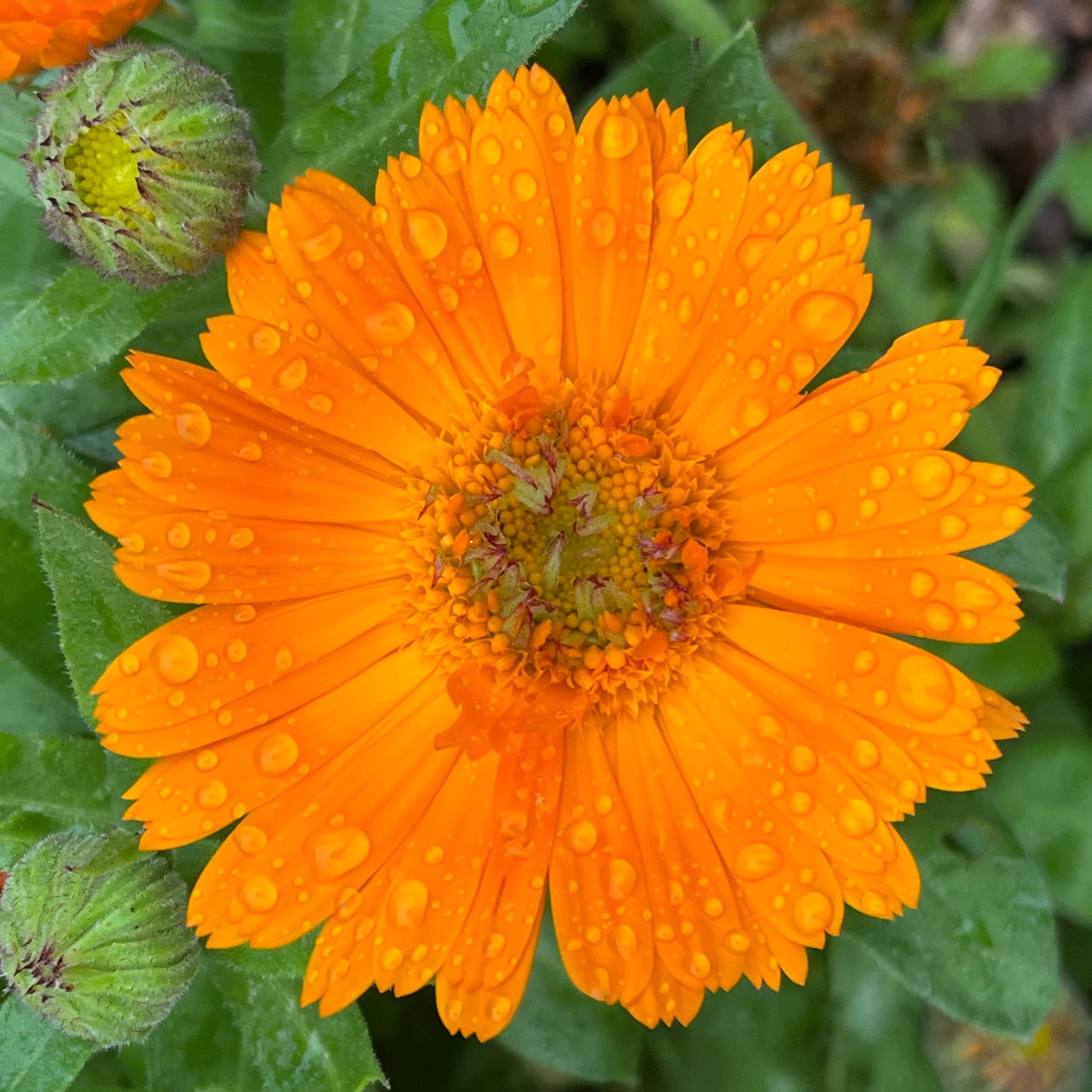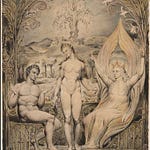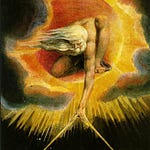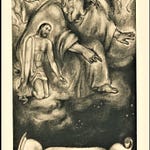Thank you for showing up here at the assembly point for this adventure in reading.
In the unlikely event that you aren’t someone I know (for who else would be reading this?) I’ll do a brief intro…
I’m Jane Davis, at home in the North West of England, a high-school-exam-failing-drop-out who later did a degree in English Literature, became an adult education teacher and later still created The Reader, a charity and social enterprise which exists to bring people together and books to life.
I stood down as Director of The Reader in December 2022 - prompted by the Covid pandemic, I had realised I wanted a quieter, a more inner life - and have since been spending a lot of my time gardening, which I write about elswhere.
During the pandemic, I started an online weekly Shared Reading group which began reading Wordsworth’s poem on the growth of the poet’s mind, The Prelude.
This became a remarkable experience, the weekly sharing of engagement with this long-dead poet, in a group of people who had only ever met on Zoom, and were living in locations around the UK but also in New Zealand, New York, Paris.
We read The Prelude from start to finish, with quite a few weeks where we had to repeat last week’s reading because it was hard to keep in mind. For just over two years, we met, read and shared our thinking and experiences, while in our non-Zoom lives, Covid gradually ceased to be a crisis, our children grew up, loved ones died, we moved house, used our creativity to make lovely things, retired, got ill or carried on working … all of which somehow, gradually, also fed into our reading together.
I am now relaunching that group, starting afresh, this time on the great epic that preceded The Prelude, John Milton’s Paradise Lost. Some new readers are joining, and the group meets for the first time on Thursday 11 April, 7.30 BST. It’s a group that is closed, because it’s full. It can’t be a a very big group, even on Zoom, because the intimacy of our Shared Reading would be lost.
So I had the idea of writing about this weekly Paradise Lost reading as a way of opening the experience to others.
I think it is fair, with no research to back me up, to say that very few people would set off on a reading of Paradise Lost on their own. I don’t think I would do that myself these days, though I have done it in the past. Now, especially after that transformative (for me) re-reading of The Prelude, I believe that Shared Reading is the best way to get into these great works.
Each week I plan to read whatever section we have read on Thursday night and publish it as a short podcast which will accompany whatever I write here. Until the weekly routine develops I’m not sure yet which day I will get the writing out, but I’m aiming for Wednesdays.
A few years go I started writing about my own, solitary weekly reading of Paradise Lost over on my old blog at my readerjanedavis wordpress blog - and I will likely reuse some of that as we go…
Below is the opener from that previous online reading, updated to suit the here-and-now of this project:
How I’m going to do this
I’m going to paste the lines for each week’s reading into this newsletter. I’ll also read it aloud here - as we haven’t yet got started I’ve read the opening sentence, sixteen lines - this week, just to test the system! Usually, I’ll also write about thoughts I have and you, dear reader, have a standing invitation to write back with your readings, in comments.
For text, I’ll be pasting from the Dartmouth College Milton Reading Room site, taking out the links to footnotes, which I find interrupt my reading concentration: you can always go direct to Dartmouth if you want them. I’d urge you to try not to, in the first instance, as they often don’t help with the most difficult bits even as they distract you away from the text.
I’m treating the poem as a piece of literature. First we experience the text, then later, if needs be, we can look up the history. Largely, we’ll try to skim along, not getting too bogged down in historical detail.
This is Paradise Lost for absolute beginners. I’m reading with assumption of no knowledge at all on the part of readers. I had wanted to say, ‘including me’ in that previous sentence but it is true that I’ve read the poem many times over the past forty years, so, yes, there may be some ‘knowledge’ there - footnotes I’ve checked up on over time that have stuck in my mind (more likely not!) And I have recently read a few books about Milton and his writing. A big biography (John Milton: Life, Work and Thought by Gordon Campbell and Thomas Corns) and two books of thinking about Milton (The Value of Milton by John Leonard, and Maggie Kilgour’s Milton’s Poetical Thought.) They were all interesting, but the one that gave me most bang for my buck was Kilgour’s sparkling firecracker of a book, which shook me up and made me think. Can’t ask for more than that. It’s also only 124 pages.
Please Note: I’m not recommending you read any of these. Much better, if you are new to it, to concentrate on reading the poem.
At a deeper level, when we read poetry we are always beginners. You have to make it come alive, each time, and there’s no relying on previous ‘knowing’. I find if I try to keep hold of a previous understanding of any poem (oh, I know this one!) what happens is that it won’t come alive. You have to let go of knowing. All creation is making it new and reading, at its best, is a deeply creative act.
In that sense I’m here in the same spot as everyone else, choosing to face a tremendously demanding new creative task: read this now. The only thing my prior experience has truly given me is the desire to start again and the confidence to believe it will be worthwhile.
How I got here
Long ago, I came to Milton via Wordsworth. The two poets are connected in that Milton’s poem is one of the models and creative impulses behind The Prelude. If you aren’t into Wordsworth – take my word for it – he’s worth reading. And his recommendation, in this case, is worth taking. I needed that recommendation because my initial instinct about Milton was that I didn’t like him.
I didn’t like him because I was afraid of him, he seemed unsympatico; patriarchal and bombastic, and I feared his moral judgement and inexorability. All that may still be true, but I have found over a lifetime of reading Milton that there is also much to love and be grateful for – even as he shouts me down.
I may have read Paradise Lost as part of my undergraduate degree, but if I did, it made no impression on me at all except perhaps to set off ‘keep away’ warning bells. I don’t recall writing about it, which is often the most intense form of reading. But in the first year of my Ph.D. at the age of 27, I began to read the poem in earnest. That thesis was not an academic exercise for me. My central question was: what happens to religious belief when people don’t believe in it? Do we still have experiences that might otherwise be called ‘religious?’ I was undertaking it to discover or build for myself a way of understanding and making sense of my own life. I needed to know what I could believe.
Earlier, in my teens and early twenties, having grown up in what we might have called ‘freedom’, a do-what-you-want, drink-what-you-want, behave-as-you-want, take-whatever-drugs-you-want universe, the rebel life had seemed brave and revolutionary. But now, with deaths both literal and metaphorical behind me, and my mother, from whom I was estranged, dying of alcoholism, a disease of despair, I was myself desperate to find a way of being that would keep me alive and help me, as E.T. says, be good. During the writing of that Ph.D. George Eliot nodded me towards Wordsworth, Wordsworth gave me a shove in the direction of Milton, and here I find myself, a lifetime later, still reading him. Rebels, rules, death ‘and all our woe’ plus the beauty of creation - it could have been written for me!
A Quick Look…
Readers’ Tip: Ignore this first bit, ‘The Argument’.
The poem is divided into ‘books’, which are like chapters, and each book starts with a summation of its content, which Milton calls, ‘the argument.’ I tend not to read this, or only to come back to it later, because the range of what is to be covered is so vast, I can’t take it in. I prefer to jump into the poem and read it sentence by sentence.
BOOK 1
THE ARGUMENT
This first Book proposes, first in brief, the whole Subject, Mans disobedience, and the loss thereupon of Paradise wherein he was plac’t: Then touches the prime cause of his fall, the Serpent, or rather Satan in the Serpent; who revolting from God, and drawing to his side many Legions of Angels, was by the command of God driven out of Heaven with all his Crew into the great Deep. Which action past over, the Poem hasts into the midst of things,presenting Satan with his Angels now fallen into Hell, describ’dhere, not in the Center (for Heaven and Earth may be suppos’d as yet not made, certainly not yet accurst) but in a place of utter darkness, fitliest call’d Chaos: Here Satan with his Angels lying on the burning Lake, thunder-struck and astonisht, after a certain space recovers, as from confusion, calls up him who next in Order and Dignity lay by him; they confer of thir miserable fall. Satan awakens all his Legions, who lay till then in the same manner confounded; They rise, thir Numbers, array of Battel, thir chief Leaders nam’d, according to the Idols known afterwards in Canaan and the Countries adjoyning. To these Satan directs his Speech, comforts them with hope yet of regaining Heaven, but tells them lastly of a new World and new kind of Creature to be created, according to an ancient Prophesie or report in Heaven; for that Angels were long before this visible Creation, was the opinion of many ancient Fathers. To find out the truth of this Prophesie, and what to determin thereon he refers to a full Councel. What his Associates thence attempt. Pandemonium the Palace of Satan rises, suddenly built out of the Deep: The infernal Peers there sit in Councel.
OF Mans First Disobedience, and the Fruit
Of that Forbidden Tree, whose mortal tast
Brought Death into the World, and all our woe,
With loss of Eden, till one greater Man
Restore us, and regain the blissful Seat, [ 5 ]
Sing Heav’nly Muse, that on the secret top
Of Oreb, or of Sinai, didst inspire
That Shepherd, who first taught the chosen Seed,
In the Beginning how the Heav’ns and Earth
Rose out of Chaos: Or if Sion Hill [ 10 ]
Delight thee more, and Siloa’s Brook that flow’d
Fast by the Oracle of God; I thence
Invoke thy aid to my adventrous Song,
That with no middle flight intends to soar
Above th’ Aonian Mount, while it pursues [ 15 ]
Things unattempted yet in Prose or Rhime.
So there we are, the first sentence, setting out the task, which is to explain how things have got so bad, and how they might be fixed.
See you next week to make a start.













